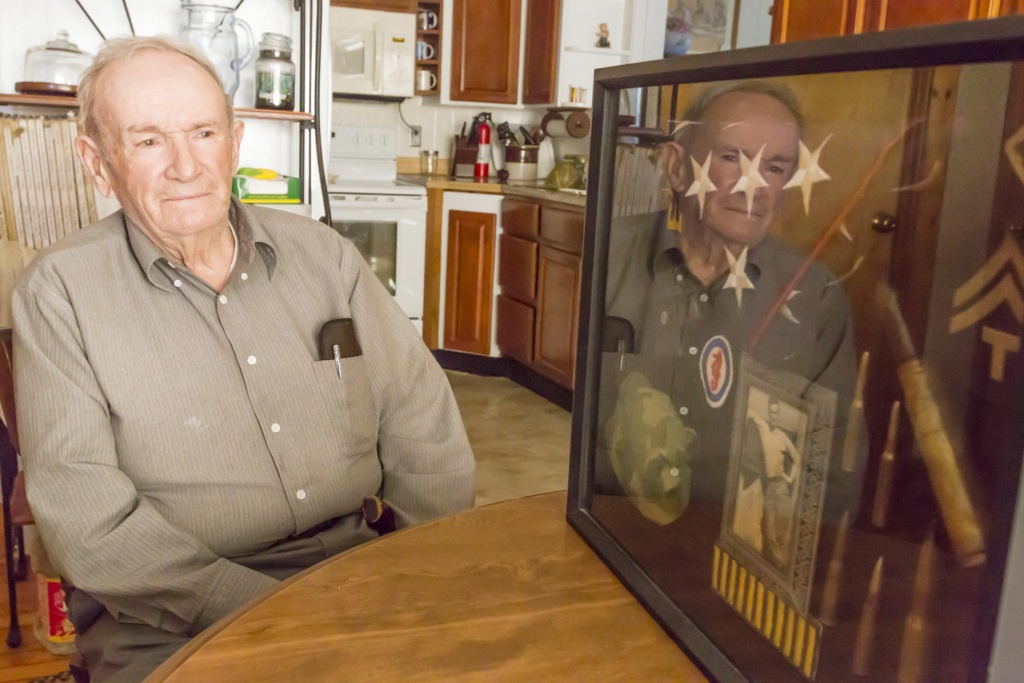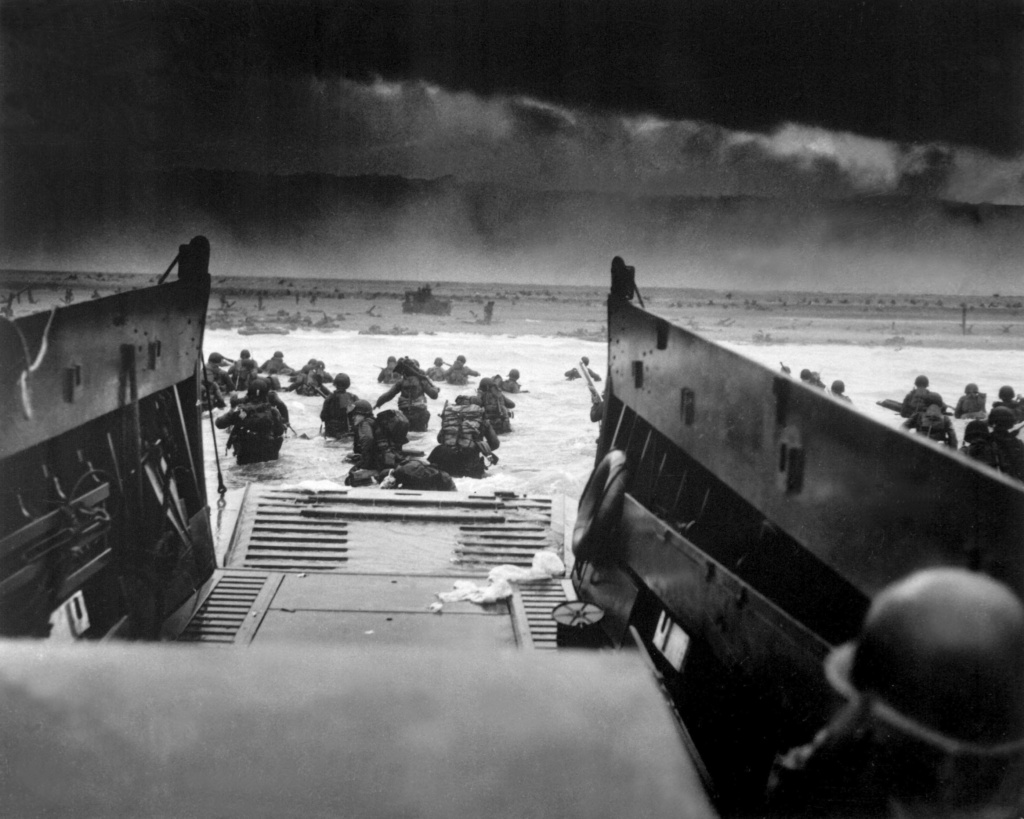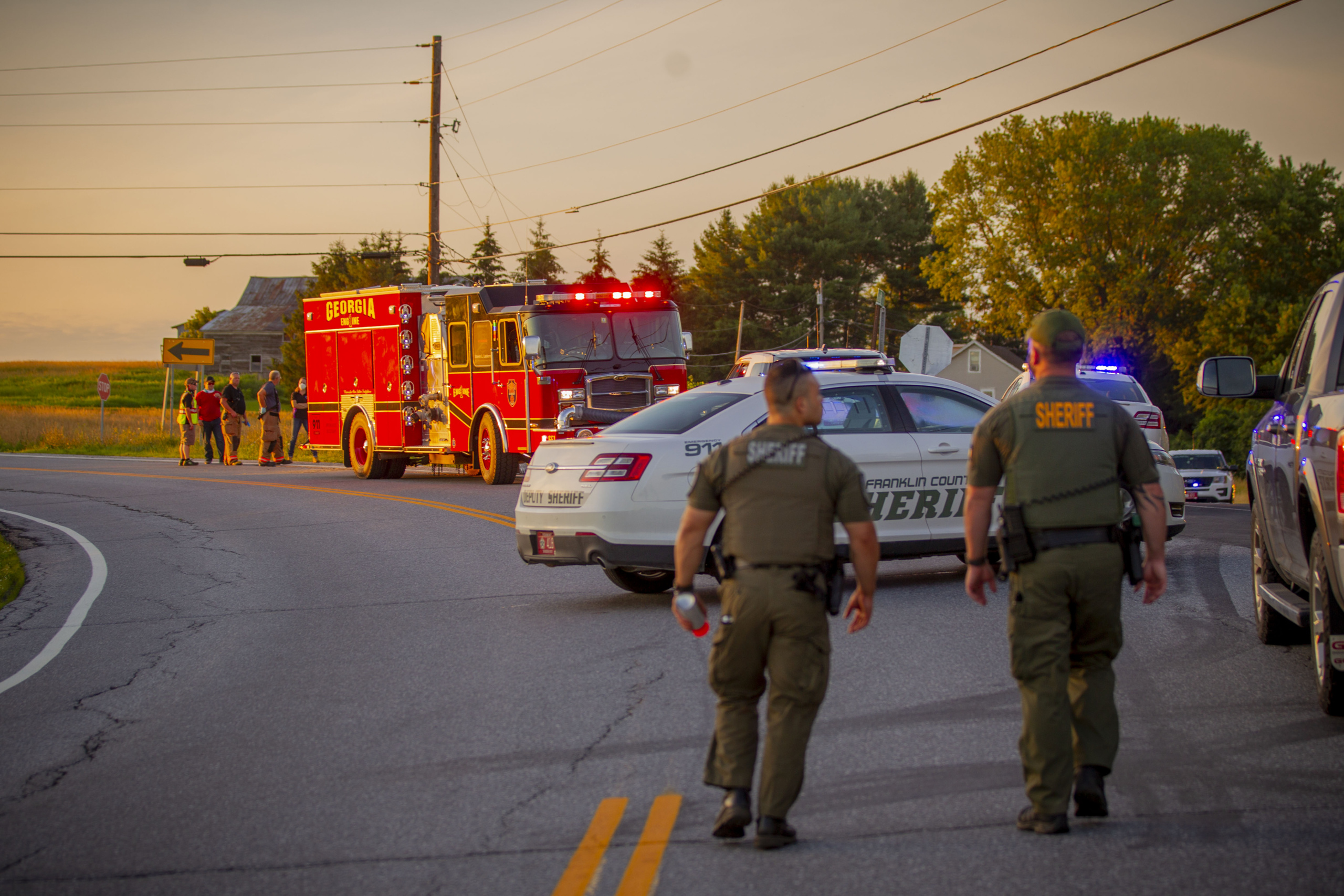A RICHFORD MAN’S PART TO D-DAY

By Linda Collins
for the County Courier
RICHFORD: Fifteen years ago Lyle Hurtubise was recounting memories of storming the beaches on D-Day sixty years earlier. Today, though the memories may be dimmer for him, a new generation needs to be reminded of the sacrifices Hurtubise and many other Americans made.
The land means everything to Hurtubise and he defended the freedom to own that land when he and thousands of others stormed the beach in France during the D-Day Invasion, June 6, 1944.

Born on the family farm in Richford in 1924, Hurtubise, like most men of his time, enlisted in the army immediately after graduating from high school. After training at Fort Devins, Mass. he was assigned to the 531st Special Amphibian Operation and the teenager shipped out of New York Harbor on New Year’s Eve. “It was overwhelming to pass the Statue of Liberty as we left,” Hurtubise said in an earlier interview.” From there, we went to the South of England for six months of training on how to land and secure beaches.”
Although they didn’t know where they were going, his unit did dry runs and lost men in the process, men he didn’t hear about until they returned from the drill. “We lost seven or eight hundred in the Channel,” he said.” We knew something out of the ordinary was coming and we were close to battle when we saw Gen. Eisenhower’s ship in the water. Although we never saw him we knew by the stars on the boat we were ready for an invasion.”

Eisenhower himself was in London and had given the orders that were now in the hands of the men at sea, on the beaches, and in the air.
In his D-Day order, Eisenhower claimed that the “tide had turned.” “The free men of the world are marching to victory. I have full confidence in your courage, devotion to duty and skill in battle. We will accept nothing less than full victory. Good luck, and let us all beseech the blessings of the Almighty God upon this great and noble undertaking.” He claimed the task would not be easy as the enemy is well trained and “battle hardened” and will fight savagely.

The battle was delayed because of stormy weather; after 24 hours they said, “Let’s go!” Hurtubise said. “There wasn’t much time to think, they loaded us into what became known as ‘Liberty Boats’ and headed across the channel to France.”
“We went over the sides of the boats on rope ladders into smaller boats that held about 50 men. Then everything started at the same time. Anywhere you looked there were boats and helicopters. The largest amphibian operation the world has ever seen,” Hurtubise recounted.
It took a night to cross the channel and Hurtubise said the men tried to keep their spirits up by joking. The timing was of the essence, he recalled, and at 6:30 a.m. the boats formed convoys and maneuvered toward the beaches. Then the landing. “For the life of me, with all the shelling and big guns, I didn’t think there would be a life left.” That wasn’t true and the orders from the top were painfully clear.” Hurtubise hesitated, “The order was to kill the bastards.”

As with many combat veterans, words about death and destruction are sometimes difficult for Hurtubise. Invasion deaths estimate approximately 3,000 on the Allied side and 4,000 for the Germans, but by midnight there were 150,000 Allied troops, including Americans, British, and Canadians on the Normandy Beach. Hurtubise was one of those men.
“From 6:30 to 11 a.m we were told to attack, after that we would take prisoners,” he said. “They didn’t really want prisoners because they would have to guard and feed them—if you know what I mean.”
Today marks the 75th anniversary of that fateful day. A day that will live on as the beginning of the end of Nazi-occupied Europe, where thousands of men, much like Hurtubise, fought to the death for the freedom that many take for granted today.





